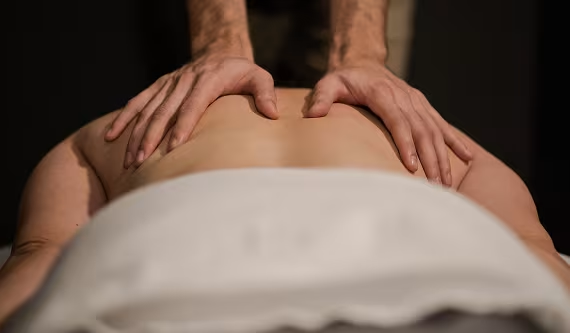Symptom – Are you experiencing Sore Muscles?
Sore muscles are a common problem that can be caused by a variety of factors, including physical activity, sitting or standing for long periods of time, or exposure to cold temperatures. Sore muscles can be uncomfortable and may make it difficult to move or perform certain activities.
There are several ways to relieve sore muscles:
- Rest: Giving your muscles time to recover can help reduce soreness.
- Ice: Applying an ice pack to sore muscles can help reduce swelling and numb the area, providing temporary pain relief.
- Heat: Using a heating pad or warm shower can help increase blood flow to the affected area and relax sore muscles.
- Stretching: Gentle stretching can help improve flexibility and reduce muscle soreness.
- Massage: Massaging sore muscles can help reduce tension and improve circulation, which can help alleviate soreness.
- Over-the-counter pain relievers: Nonsteroidal anti-inflammatory drugs (NSAIDs) like ibuprofen or acetaminophen can help reduce muscle pain and inflammation.
If your muscle soreness is severe or persistent, or if you have other symptoms like fever or difficulty breathing, you should see a doctor for further evaluation.
What causes Sore Muscles?
Sore muscles can be caused by a variety of factors, including physical activity, sitting or standing for long periods of time, or exposure to cold temperatures.
Physical activity: Sore muscles are often the result of physical activity, particularly if you are not used to exercising or if you have increased the intensity of your workouts. This type of muscle soreness is known as “delayed onset muscle soreness” (DOMS) and typically occurs within a day or two after exercising. DOMS is thought to be caused by microscopic tears in the muscle fibers, which can lead to inflammation and pain.
Prolonged sitting or standing: Spending long periods of time in one position can lead to muscle soreness, particularly in the lower back, neck, and legs. This type of muscle soreness can be relieved by getting up and moving around or stretching.
Exposure to cold temperatures: Exposure to cold temperatures can cause muscles to contract and become sore. This type of muscle soreness is often temporary and can be relieved by warming up the affected area.
Other factors that can cause muscle soreness include muscle strain or injury, poor posture, and certain medical conditions. If your muscle soreness is severe or persistent, or if you have other symptoms like fever or difficulty breathing, you should see a doctor for further evaluation.
How to treat your Sore Muscles?
There are several ways to treat sore muscles:
- Rest: Giving your muscles time to recover can help reduce soreness.
- Ice: Applying an ice pack to sore muscles can help reduce swelling and numb the area, providing temporary pain relief.
- Heat: Using a heating pad or warm shower can help increase blood flow to the affected area and relax sore muscles.
- Stretching: Gentle stretching can help improve flexibility and reduce muscle soreness.
- Massage: Massaging sore muscles can help reduce tension and improve circulation, which can help alleviate soreness.
- Over-the-counter pain relievers: Nonsteroidal anti-inflammatory drugs (NSAIDs) like ibuprofen or acetaminophen can help reduce muscle pain and inflammation.
It’s important to listen to your body and not push yourself too hard, especially if you are not used to exercising. It’s also a good idea to warm up before physical activity and stretch afterwards to help prevent muscle soreness. If your muscle soreness is severe or persistent, or if you have other symptoms like fever or difficulty breathing, you should see a doctor for further evaluation.





